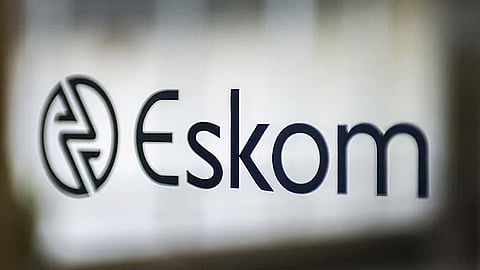Eskom tops SOE payrolls with R1 million average employee cost
Key topics:
Eskom’s 2025 employee cost averages R1.026m, highest among SOEs.
Managers earn far above the bargaining unit, inflating the average pay.
New laws will force detailed disclosure of pay and remuneration gaps.
Sign up for your early morning brew of the BizNews Insider to keep you up to speed with the content that matters. The newsletter will land in your inbox at 5:30am weekdays. Register here.
Support South Africa’s bastion of independent journalism, offering balanced insights on investments, business, and the political economy, by joining BizNews Premium. Register here.
If you prefer WhatsApp for updates, sign up to the BizNews channel here.
Eskom’s average employee earns far more than workers in other state-owned companies, including several which generally require a high level of technically specialised capabilities.
Eskom’s 2025 financial year report showed that the power utility incurred an average cost of R1.026 million per employee, 12.4% higher than in the previous year.
The increase was due to several factors, including a 7% annual salary adjustment and the return of short-term performance incentives.
MyBroadband benchmarked the utility’s cost per employee against nine other prominent state-owned enterprises (SOEs) that have published their 2025 financial year results.
Some of the other large SOEs that could not be included in the comparison due to a lack of up-to-date financial results were weapons and arms manufacturer Denel and South African Airways (SAA).
Eskom’s number was the highest by a substantial margin. The company with the second-highest average cost per employee was Telkom, which is partially privatised.
In its 2025 financial year, Telkom’s average cost per employee was R926,806, about R100,000 less than Eskom’s.
Read more:
Like energy companies, telecoms firms have a high proportion of skilled workers demanding higher salaries.
The financially-struggling South African Broadcasting Corporation (SABC) had the third-highest cost per employee of R888,551.
While it has retrenched hundreds of staff in recent years, the broadcaster has not turned a profit since 2015.
Despite operating in a field renowned for its technical complexity, the Nuclear Energy Corporation of South Africa (Necsa) only had the fourth-highest cost per employee.
The industry often requires a strong background in physics and maths. Roles in engineering and research typically demand at least a Bachelor’s degree in a relevant field, such as nuclear engineering or physics.
South Africa’s largest state-owned company by employees — Transnet — incurred an average cost of R668,515, the fifth highest of the analysed SOEs.
The entity with the lowest pay per employee in our analysis was the Post Office, with an average cost of R267,575.
The SOE is currently in a business rescue process that has resulted in substantial staff reductions over the last two years.
The table below compares Eskom’s average cost per employee with those of nine other SOEs that have published their 2025 financial year results.
Eskom managers coining it
Using an average employee cost is a somewhat simplistic instrument to determine whether staff in an organisation like Eskom are overpaid.
For example, a group of extremely well-paid employees could mask the fact that a subset of staff are paid poorly.
However, a MyBroadband analysis showed that even when excluding its executives and board members from the equation, the average cost per employee barely reduces to R1.025 million.
Eskom also makes it difficult to establish a picture of the remuneration as it does not publicly disclose pay grades or scales, or the number of staff earning a salary within a particular pay grade or scale.
Using previously leaked data, an analysis by MyBroadband found that everyone in Eskom’s bargaining unit — which makes up about two-thirds of its workforce — are earning less than the average.
This suggests that managers, who fall between the bargaining unit and top staff, earn well above the average.
Impending changes to the Companies Act will force the power utility and other businesses in South Africa to analyse and publish detailed information about remuneration, including:
the total remuneration received by each director and prescribed officer of the company;
the total remuneration in respect of the employee with the highest total remuneration;
the total remuneration in respect of the employee with the lowest total remuneration;
the average total remuneration of all employees;
median remuneration;
and the remuneration gap reflecting the ratio between the total average remuneration of the top 5% highest paid employees and the total average remuneration of the bottom 5% lowest paid employees of the company.
Eskom has defended its average cost per employee increasing by more than 2,610% since 1990, despite inflation of 812% over the same period.
Read more:
The power utility argued that this must be viewed in the context of its “evolution” over the past three decades.
It maintained the hikes reflect a “shift in workforce composition, compliance with modern labour legislation, and the need to retain critical skills to sustain reliable electricity supply”.
This article was first published by MyBroadband and is republished with permission

